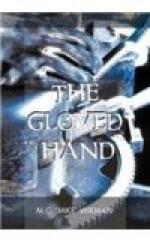It became impossible a moment later, when a string of automobiles puffed up the drive and disgorged a mob of reporters and photographers. As many as the room would hold pushed into it, and the others stood outside in the drive and complained loudly. The complaints of the photographers were especially varied and forceful. Goldberger looked around him in despair, mopping his face angrily, for the crowded room was very hot.
“You fellows will have to get out of here,” he said to the reporters. “There’s no room. I’ll give you a transcript of the proceedings after they’re over.”
The protests redoubled. How were they to get any human interest out of a transcript? Besides, there were the photographers. What did he expect them to do—photograph the transcript? And finally, the law required that the hearing be public, so they had a right to be present. It was a tense moment, the more so since Goldberger was by no means insensible of the value of newspaper popularity to a man in public life.
“Why not go out on the lawn?” Godfrey suggested. “It’s only a question of moving some chairs and tables, and the boys will all lend a hand.”
The boys applauded, almost forgiving Godfrey his scoop, protested their entire willingness to lend two hands if necessary, and, when Goldberger nodded his approval, fell to work with a will. The lower floor of the house was denuded, the garden seats pressed into service, and at the end of five minutes, the court was established amid the circle of trees, the reporters had their coats off and their pipes lighted, the photographers ditto and their cameras placed. Good humour was restored; peace reigned; and Goldberger smiled again, for he knew that the adjectives with which the reporters would qualify his name would be complimentary ones!
He took his place, rapped for order, and instructed his clerk to swear the jury. Nobody paid much attention to the jury, for it was a recognised device for paying small political debts, and its verdict was usually in strict accord with the wishes of the presiding officer. Then Goldberger looked at the vacant chair which I had kept beside me.
“By the way, Mr. Lester,” he said, “I don’t see Mr. Swain.”
“He had to go back to the city last night,” I explained, “to get some fresh clothes. He had an errand or two to do this morning, and may have been detained. I left word at the house for him to come over here at once.”
“You seem to have a good deal of confidence in him,” Goldberger remarked.
“I have,” I answered quietly. “A great deal.”
Goldberger frowned a little, but proceeded to open the case without further delay. Godfrey was the first witness, and told his story much as he had told it the night before. I followed him, but contributed no new details. Both of us were excused without cross-examination.
To my great satisfaction, Swain arrived while I was testifying, and I could not deny myself a triumphant glance at Goldberger, but he was studying some memoranda and affected not to notice it. As soon as I left the stand, Swain came and sat down beside me and gave me a letter. It was addressed to Miss Vaughan.




